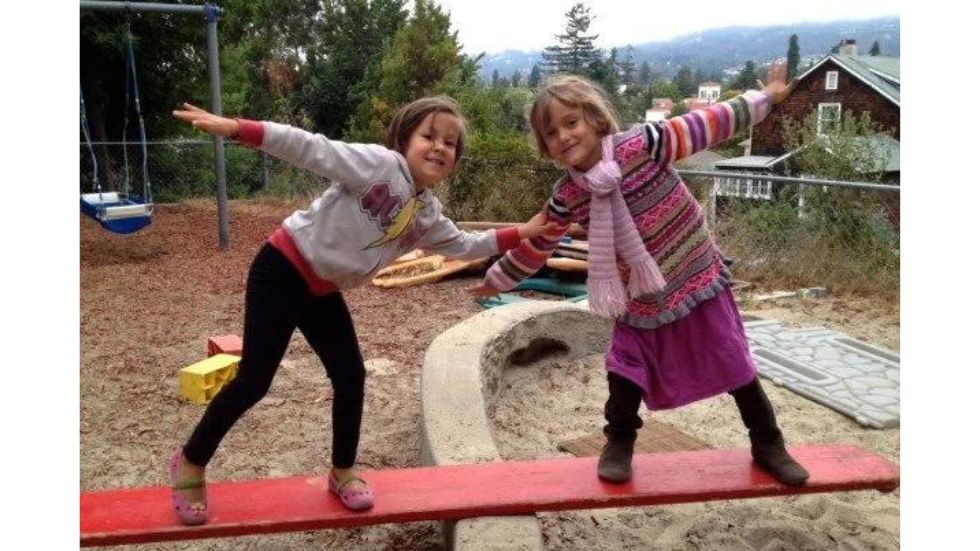
by Lisa Fuller | Sep 7, 2015 | General, Motivation, Parenting, Self-care
Being on autopilot has gotten a bad rap. Mindless, unconscious, not thinking, a cognitive state in which you act without self-awareness.
Here’s why, as a parent, I love it. (Maybe you’ll relate, too?)
Autopilot can help you live with a focus on what really matters to you — without all the effort.
When you get into parent mode and forget to do the things you love (and even the things you don’t but simply need to do — like go to the doctor!), autopilot comes in handy. If you’re one of those who goes weeks or even months before you remember to do something for yourself, or who’s just plain forgotten what it is you love (besides your kids) you need more autopilot.
Autopilot – a navigational device that automatically keeps ships or planes or spacecraft on a steady course.
Think of yourself as a whole person (the entire spacecraft if you will!) – parent, spouse, leader, singer, creator, lover, grower, cooker, collaborator, teacher, hugger….
As a whole person, you have many different courses that need to be followed on a daily basis — not the least of which are courses that help you take care of you.
Here’s how I’ve consciously used autopilot to experience more joy in my life… on a consistent basis.
When my first son was born, none of my friends had children. I was the first. In some ways it was wonderful because initially, friends offered to sit for him while my husband and I grabbed a bite to eat or took a walk. Our baby boy was a novelty who delighted and surprised.
However, after a few months, I noticed I wasn’t seeing friends. I was exhausted and it took too much energy to organize socializing. While I felt fried by the physical demands of parenting, I deeply missed my connection with my friends.
I decided to form what came to be known as “dinner group.” With 3 other couples that I knew from social work school, we’d gather every Thursday evening at one of our homes for a meal. We had a rule that host duties rotated and to keep it simple the host did all the work — no stepping in to help clean up, and it was okay if you to arrive late.
Dinner group endured for 15 years. Autopilot worked like magic. We attended each other’s weddings and births and even put together a cookbook of our favorite recipes. That deep, continuous connection that I craved was achieved without the daily nagging feeling, “I should invite friends over.”
***
I also love live theatre, but feel completely overwhelmed by the Pink Section (the San Francisco Chronicle’s arts section). I find it stressful to make future plans and, frankly, to commit. I weigh the cost of a show and wonder if it’s really worth it. And then I end up not doing anything.
However, a fews years back my husband surprised me with season tickets to the Berkeley Rep for my birthday. The gift of theater and not having to decide and follow through has been huge. I’ve renewed the tickets every year since… why? Autopilot.
Just yesterday I put dates for six shows in my calendar from September through June. I look forward to and plan around these dates. I invite a friend or my husband and we make an evening of it with dinner and lots of time to chat and connect.
It’s an absolute luxury. A treat. What makes it doubly delicious is that I don’t have to go to the effort of researching, weighing, purchasing and planning. Sure, some shows are better than others but the surprise and ease is a large part of the fun.
***
 What do you love that you’re not doing because you’ve got kids and it feels like too much effort to set plans in motion? What doesn’t feel worth the hassle right now, but you know at the end of the year (or the end of your life!) you’ll feel a deep pang because you didn’t ________?
What do you love that you’re not doing because you’ve got kids and it feels like too much effort to set plans in motion? What doesn’t feel worth the hassle right now, but you know at the end of the year (or the end of your life!) you’ll feel a deep pang because you didn’t ________?
Your list might include going to the theatre, having dinner with friends on a regular basis, Monday dog walks with your BFF or keeping up with your Positive Discipline practice.
If it’s the latter, and you’ve already taken at least 12 hours of PD instruction, get yourself on autopilot by signing up for the on-going Roots series.
It’s once a month (September – May) — don’t torture yourself by having to consider it every month. Just sign up and be done with it. If you make it, great, if not, chalk it up to making an intention that you really care about.
Once you’ve got the Roots meeting on your calendar in ink you’ll be more likely to attend — the first step in making a change is bringing your mental focus to what you want to change.
***
I just learned that Frances McDormand is playing Lady Macbeth in a production in the upcoming season at the Berkeley Rep. Don’t ask me where my seats are, what they cost, or even what month I’m going. It’s on the calendar and I’m thrilled!
When I’m engaged in my life, doing things I love (outside of parenting), I’m lighter, happier and more consistently grounded and present with the kids and everything else in my life.
Ask yourself: What do I want more of? What am I craving that I just don’t make time for anymore? What will help me stay steady and on course with more joy?
Next, consider how you can put this activity on autopilot; and finally, set the wheels in motion by calling your BFF to see about that Monday morning walk (scheduled on auto repeat in your calendar).
Lastly, send me an email or share in the comments about your autopilot activity. I’d love more ideas for pressing autopilot.

by Lisa Fuller | Aug 15, 2015 | Connection & Love, Encouragement, General, Parenting, Self-care
This summer’s been a doozy. What once felt like a series of mini health crises has come to feel like the norm with appendicitis, stress fractures, depression, drug addiction, cancer and even death becoming a more common part of life.
Last summer, I started writing a post about how to parent when you feel distracted or distraught by a loved one’s suffering.
It’s a hard topic. So hard, that I never completed the post. I couldn’t bring myself to put a bow on it and send it to you. My thoughts never felt right or complete or enough.
Now, it’s back around as I’m dealing with my own health struggles. This week I had two areas of infiltrating basal cell carcinoma surgically removed from my face. With the surgery behind me and plenty of ice packs, I feel a sense of deep gratitude. My doctor described the tumors as nasty and aggressive and I’m lucky that they could be removed.
So I ask for myself and maybe you too – how do you parent when you’re struggling with your own or a dear one’s illness?
This is what I’ve gleaned talking with some of you and pondering the question these last 12 months:
-
- Keep it simple. When your child’s needs feel draining of the little resources you have serve macaroni and cheese or Cheerios and let them watch TV. It’s okay.
-
- Prioritize. Allow what’s most important to rise to the top. Family, food, sleep, and exercise (if possible) make up my essential list.
-
- Say no mostly and yes only if that YES will enhance your life. Time and energy are limited. Use yours wisely.
- Reach out intentionally. Ask for help — as my friend Liz says, “you may need to get over yourself” to do this. Remember that close friends want to lend a hand, particularly when a bigger situation leaves them feeling helpless.
I “got over myself” this past week when my friend Carolyn came bearing flowers the day before my surgery. Having had a similar experience, Carolyn warned me that the hardest part for her had been after the procedure, when she had to remove and replace the bandages. I immediately asked if she would be willing to come over and help me do that. She said yes, and little did I know just how important it was to have her for moral and physical support. With 22 stitches across my hairline — and as the doctor put it, “too many to count” in my nose — I was weak and close to fainting. It took us an hour and a half to remove and replace all of the dressings that first time. I can’t imagine what it would have felt like to do this alone.
-
- Stick with the facts. Depending on the age of your child, share relevant factual information, but only the surface story. They don’t need to know the details and certainly not your “what if” fears. While your fears may be in the realm of possibility, they’re not the facts.
-
- Be childlike. As much as you can, allow your child’s aliveness and awe of life to touch you and lift you into the present.
-
- Dare greatly by saying no to guilt. Instead, accept that you may be more foggy and distracted than you’d like to be with your kids. It’s okay. Don’t add parent guilt to the list of your full bucket of worries. In Daring Greatly Brené Brown writes, “To set down those lists of what we’re supposed to be is brave. To love ourselves and support each other in the process of becoming real is perhaps the greatest single act of daring greatly” (Page 110).
- Lower your expectations. Finally, be realistic about how much your kids, depending on age, will be able to empathize with you or the situation. In my experience that’s NOT MUCH. They don’t get it, nor should they.
 A few years ago, my brother’s best friend and brother in-law, Steve, died unexpectedly during a surgery. Because Steve was beloved by his community as a volunteer firefighter during the Eastern Long Island pine barren wildfires, acting as Chief of the fire department at the time of his death, founder of the junior volunteer firefighter training program and a village civil servant, the community put on a huge uniformed procession for the funeral. Being family and a close friend, my brother delivered the eulogy. In the midst of the long funeral procession through town, his 8 year-old son Aidan turned to him and asked in a tired voice, “when is this going to be over?” My brother was both heart-broken and relieved by the question. How could Aidan, who’d loved Uncle Steve deeply, be ready to move on? Be so oblivious to the gravity of the situation? Be so cold as to be DONE with Steve? At the same time – in Aidan’s question my brother heard hope and the possibility that life could go on – that tomorrow would eventually arrive and maybe it was sooner than my brother thought possible. In his son’s words were the innocence and gravity of the truth that we do go on, even when we lose the unloseable friend, even when we suffer unimaginable pain.
A few years ago, my brother’s best friend and brother in-law, Steve, died unexpectedly during a surgery. Because Steve was beloved by his community as a volunteer firefighter during the Eastern Long Island pine barren wildfires, acting as Chief of the fire department at the time of his death, founder of the junior volunteer firefighter training program and a village civil servant, the community put on a huge uniformed procession for the funeral. Being family and a close friend, my brother delivered the eulogy. In the midst of the long funeral procession through town, his 8 year-old son Aidan turned to him and asked in a tired voice, “when is this going to be over?” My brother was both heart-broken and relieved by the question. How could Aidan, who’d loved Uncle Steve deeply, be ready to move on? Be so oblivious to the gravity of the situation? Be so cold as to be DONE with Steve? At the same time – in Aidan’s question my brother heard hope and the possibility that life could go on – that tomorrow would eventually arrive and maybe it was sooner than my brother thought possible. In his son’s words were the innocence and gravity of the truth that we do go on, even when we lose the unloseable friend, even when we suffer unimaginable pain.
I’ve decided that it’s okay that I don’t have a bow on this one. Its a question that doesn’t have a neat answer.
Please chime in with your thoughts and questions in the comment section. How do you parent when you feel overwhelmed by your own or a loved ones health challenges or a death?
What advice would you add?

by Lisa Fuller | May 12, 2015 | Communication, Encouragement, Feelings & Emotions, General, Parenting, Sibling Issues

Practice Scripts for Parents: So you can stop unwittingly contributing to your children’s fighting
In Part One we looked at the tremendous learning that results from sibling relationships.
In Part Two we looked at the importance of staying out of your kids’ fights after establishing — and repeatedly reminding kids of — family rules and expectations. (Here’s the index with all of the resources.)
Here in Part Three we’ll explore what you do, unintentionally, to increase sibling acrimony and what you can specifically, say or do instead.
Imagine …
Scenario 1: You’re at a work meeting with your colleague (Joe) and your boss (Big Cheese). You and Joe present what you’ve been working on for the last month at which time Big Cheese looks Joe in the eye and says, “Joe what you’ve done here is outstanding work— you’re exceptional, you really are.”
Be with that. What runs through your mind, your heart?
Scenario 2: You come home after what’s been a bad day and share with your spouse what happened at work, “I just finished this huge project. Joe and I presented it to the Big Cheese, and well, you had to be there, but I felt really unappreciated. It made me feel like crap actually. I put so much of myself into that project, but he didn’t recognize me at all.”
Then your spouse replies, “You know you make a difference — the work couldn’t have been done without you. You need to remember you’re good enough whether someone tells you or not.”
Be with that. What runs through your mind, your heart?
While these are adult scenarios, what they illustrate are common mistakes we make with our children. Sometimes, daily.
The first scenario highlights the perils of praise — the non-specific superlative — and how the use of praise is particularly detrimental to the sibling bond.
How did you feel when you imagined yourself in the scenario?
In parenting class we role-play a parent praising one child but not the other. The volunteer playing the sibling not receiving praise — without exception — feels badly about themselves and usually resentful of their praise worthy sibling.
The un-praised sibling goes on to assume that the accolades lavished on sister or brother mean they’re destined to fall short… big time. Right or wrong this is a predictable human response.
In scenario 2, I’ve put the spotlight on how the denial of feelings, while well intentioned (like praise), is in fact discouraging because it communicates that we’re wrong when what we crave is to feel understood.
Below are four parent behaviors that hurt sibling relationships, followed specific examples of what they sound like and what you could say instead.
PRAISE ➜ ENCOURAGE
- Wow — you’re the fastest swimmer out there! ➜ I love to watch you swim!
- You’re such a good boy! ➜ I appreciate your help, you made my day easier.
- With more work, you’ll get it right. ➜ Look how far you’ve come, you can do it.
DENY FEELINGS ➜ ACKNOWLEDGE FEELINGS
- Just get along — she’s your sister! ➜ It sounds like you’re feeling really sad and hurt.
- Don’t say you hate your brother — that’s not nice. ➜ It looks like you guys aren’t getting along right now and could use some time away from each other.
COMPARISON ➜ DESCRIBE BEHAVIOR (put kids in the same boat)
- Why can’t you just be nice like your sister!? ➜ I can see you’re really cranky right now… come find me when you decide you’re ready to talk.
- Why do you always make things so difficult? ➜ Kids, I have faith that the two of you can work this out together. Come find me if you need help.
LABEL ➜ DESCRIBE WHAT YOU SEE, FEEL OR THE PROBLEM
- You’re the family artist. ➜ You really love to create!
- Why are you always such a bully? ➜ I see that the blocks are all over the floor, what can you do to help the situation?
- I can’t take it — you’re such a slob! ➜ Milk is all over the floor — what do you need to clean it up?
When spelled out like this, it’s crystal clear to me that [tweetthis] conscious parenting is a practice, not the default for any of us.[/tweetthis]
So it’s time to practice!
I know how hard it is so I created this Script to make it a bit easier.
Download it — print the pages you find helpful and PRACTICE.
Share your insights, questions and feedback below or write to me privately. I’d love to hear from you.

by Lisa Fuller | Apr 26, 2015 | Conflict, General, Parenting, Self-regulation, Sibling Issues
Here’s Part Two of the 3 part Sibling Series: More Good, Less Ugly: Everything you Need to Know to Foster Healthy Sibling Relationships. In case you missed it, you can check out Part One here.
A month ago, after a parent education talk (ironically, NOT about sibling issues), parents came up to me afterwards wanting to ask specific what do I do when questions.
This night each parent had a sibling challenge that deeply distressed them — and they wanted advice on how to work them out — how to FIX them.
After each told me their story of fists, tears, tussles and injustices, I asked, sincerely, so you want this to stop because ________?
It sounds like a joke but I was serious.
Here’s a snippet of their answers (and my thoughts):
- I don’t want my kids to fight. Period. (We get confused thinking peace equals the absence of conflict — not true)
- I’m afraid my children will seriously hurt each other — (it won’t happen if your kids have some skills — it makes sense to focus on teaching these skills).
- I was mistreated and abused by my siblings and my parents did nothing (if you’re reading this post, or trying to understand the issues, you’re not doing nothing. You’re learning how to respond rather than react).
It’s important for you to get to the bottom of your frantic need to end sibling fights.
When you feel desperate, your children tune into your urgency and — baBOOM! — their fights gain greater importance and power.
No matter what age they are, you can see the wheels turning in their mind… “Hey, I’m onto something here — mom’s lost her mind over this bickering — it’s energizing to have her so plugged in so I’m going to persist and/or do it again soon.”
[tweetthis]Even if a child is scared, negative engagement with you is better than the alternative, no connection[/tweetthis]
Your children are wired to get your attention (think survival) and this sibling stuff is just the ticket.
So what if you don’t react when the fight breaks out, and instead acknowledge them by:
- Letting them know you notice what’s going on and you’re here if they need your help (hint: think of yourself as a consultant rather than a cop) or
- Saying, “I can see you’re struggling with each other and I have faith that you’ll be able to work it out together.”
What’ll happen next? They’ll be flabbergasted that you haven’t jumped in to fix or solve.
Jane Nelsen says surprise leads to confusion. When a child is confused because she doesn’t get the reaction she’s used to, she’s ready to consider a new behavior.
- If the surprise results from a respectful interaction, her confusion will include a feeling of belonging and encouragement, so her new behavior is likely to be positive.
- If the surprise is a result of disrespect, then her previous misbehavior is likely to intensify.
After a recent sibling talk I got this email from a mom who’d bravely tried what I’d suggested, the very next morning:
Hi Lisa,
I wanted to tell you my success story from this morning. I feel like one of the examples from the book (Siblings without Rivalry), I was so surprised at its effectiveness!
This morning my 5.5yo son Eden left his favorite transformer toys on the floor, and his 1.5yo sister Lulu ran to them and started playing. He saw that, ran over, and pushed her backwards so her head banged the floor (she’s had worse bumps, but it was still rough and it hurt her).
I calmly went over and said, “Do you two need some help? Lulu doesn’t know why you pushed her. Use your words to tell her. I know you two can work this out. I’m going in the kitchen now so you can work it out.”
I walked away as Lulu whimpered a few times, just sitting next to her brother, probably unsure why I hadn’t defended her better.
Only 5 to 10 seconds after I walked away, Eden said, “Hey Louie, do you want another one?! I’ll get you one!” and jumped up to get her the one transformer he wasn’t playing with. He gave it to her, she happily accepted, and she scooted away a few inches to play with it in her own space.
I COULDN’T BELIEVE IT! It was exactly like the book and you said it would happen! Even though it worked so well, I admit I felt a bit guilty about seemingly abandoning Louie to her big brother in a moment of distress. But I get that their relationship benefitted from his problem-solving so much more than if I had stepped in.
Based on the book, if we can be consistent with this kind of conflict resolution, soon both kids will not feel this as abandonment, but as empowerment instead.
–Rachel
This story beautifully illustrates that [tweetthis]you don’t stop teaching your kids just because you don’t get involved in the moment of conflict.[/tweetthis]
Rachel admits the guilt she felt in trying a new behavior — I think many of us don’t try new tools and responses, even though they may be more effective in the long run, because of the dreaded parent guilt – what’ll happen if it doesn’t work?.
There may be times when you want to step in — how do you do that without fixing?
Here are three Positive Discipline Tools to help in the moment with a dispute between young children:
- DISTRACTION — “I’ll give you something else to do now.”
- SEPARATION — “Let’s move you over here for now.”
- PUTTING KIDS IN THE SAME BOAT and recognizing that CHILDREN DO BETTER WHEN THEY FEEL BETTER — “I’d like to read you both a story now – it will help put us in a good mood. Then you can try to play together again… when you both feel better.”
So often when you plunge into a sibling fight, you think you know what’s going on.
This week, pretend you don’t and put the kids in the same boat.
Do your best to stay out of their business (or consult from the sidelines), and see what happens.
Please share your thoughts in the comments below.
If you’re not already on the list, sign up to receive Part 3 of the Sibling Series: From Squabbles to Sharing: Proven Strategies to Improve Sibling Relationships by email.

by Lisa Fuller | Apr 13, 2015 | Communication, General, Parenting, Sibling Issues
Sibling strife is a hot button issue. When I started writing a post on the topic it quickly became clear that I was going to write a Sibling Series to scratch the surface of this multifaceted issue.
Part One: Don’t Worry: There’s Hidden Treasure in Sibling Battles
Part Two: Your Surprising Role in Sibling Fights (& How to Change it)
Part Three: What You Say Either Helps or Hurts Sibling Relationships
Additional Resources
It’s my hope that these posts and resources inspire consideration, conversation and ultimately a deeper understanding of how we can encourage greater harmony between our children.
As always, please share your insights below in the comments. And if you’re not already receiving updates directly to your email, join me.

 What do you love that you’re not doing because you’ve got kids and it feels like too much effort to set plans in motion? What doesn’t feel worth the hassle right now, but you know at the end of the year (or the end of your life!) you’ll feel a deep pang because you didn’t ________?
What do you love that you’re not doing because you’ve got kids and it feels like too much effort to set plans in motion? What doesn’t feel worth the hassle right now, but you know at the end of the year (or the end of your life!) you’ll feel a deep pang because you didn’t ________?







